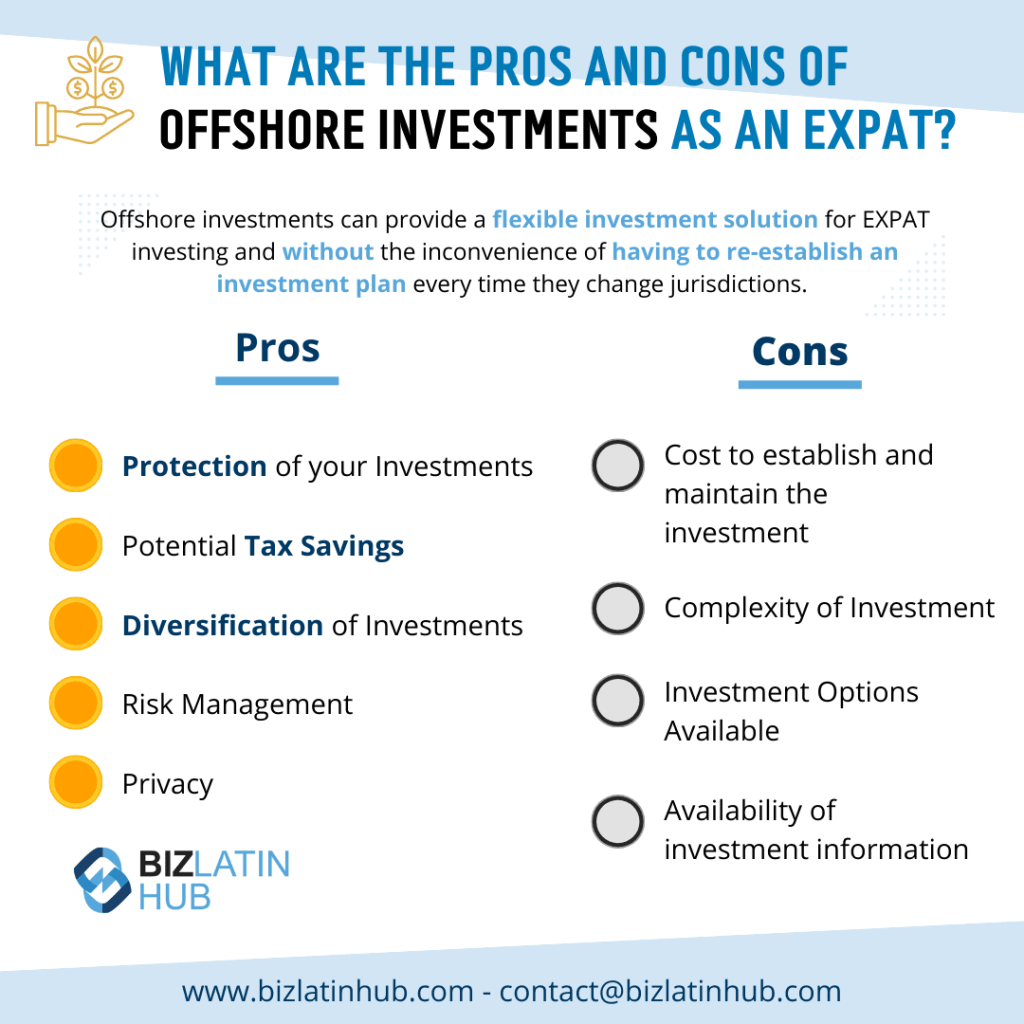A Step-by-Step Overview to Establishing Your First Offshore Investment Account
A Step-by-Step Overview to Establishing Your First Offshore Investment Account
Blog Article
How Offshore Investment Functions: A Step-by-Step Malfunction for Investors
Offshore investment presents an organized path for financiers looking for to enhance their monetary techniques while leveraging worldwide possibilities - Offshore Investment. The process starts with the careful choice of a territory that lines up with a financier's objectives, adhered to by the establishment of an account with a reputable offshore establishment. This methodical technique not just permits for portfolio diversity yet likewise requires ongoing monitoring to navigate the intricacies of international markets. As we discover each step in information, it becomes noticeable that recognizing the nuances of this investment strategy is vital for achieving ideal results.

Recognizing Offshore Financial Investment
Comprehending overseas financial investment entails identifying the calculated advantages it provides to individuals and firms looking for to enhance their economic profiles. Offshore investments typically refer to assets held in an international territory, often defined by positive tax programs, regulatory atmospheres, and privacy protections. The main intent behind such investments is to enhance capital diversity, risk, and development monitoring.

Capitalists can access a vast selection of financial tools via overseas venues, consisting of supplies, bonds, common funds, and real estate. These investments are usually structured to abide by local regulations while supplying versatility in regards to possession allowance. Furthermore, overseas investment techniques can allow services and individuals to hedge versus residential market volatility and geopolitical threats.
An additional key aspect of offshore investment is the possibility for boosted personal privacy. A detailed understanding of both the advantages and commitments associated with overseas financial investments is important for educated decision-making.
Benefits of Offshore Investing
Capitalists typically turn to offshore spending for its countless benefits, including tax performance, property defense, and profile diversity. One of the primary benefits is the potential for tax optimization. Several offshore territories provide beneficial tax programs, permitting financiers to lawfully minimize their tax obligation responsibilities and optimize returns on their investments.
In addition, offshore accounts can offer a layer of asset defense. Offshore Investment. By positioning possessions in politically secure jurisdictions with strong personal privacy regulations, capitalists can secure their riches from potential legal claims, creditors, or financial instability in their home nations. This type of security is especially attracting high-net-worth individuals and entrepreneurs facing lawsuits risks
In addition, overseas investing assists in portfolio diversity. Accessing global markets allows capitalists to discover opportunities in numerous property courses, consisting of realty, supplies, and bonds, which may not be offered locally. This diversification can reduce overall portfolio threat and boost potential returns.
Eventually, the benefits of offshore investing are compelling for those seeking to maximize their financial methods. It is vital for investors to thoroughly recognize the ramifications and regulations associated with overseas financial investments to make sure compliance and attain their economic objectives.
Selecting the Right Jurisdiction
Selecting the appropriate jurisdiction for offshore investing is a critical choice that can substantially influence an investor's monetary strategy. The right jurisdiction can supply numerous advantages, including positive tax obligation structures, asset security regulations, and regulatory atmospheres that line up with a capitalist's objectives.
When picking a jurisdiction, consider aspects such as the political stability and economic health of the country, as these elements can impact investment security and returns. Moreover, the legal framework bordering international financial investments should be assessed to make sure conformity and security of assets. Countries known for robust lawful systems and transparency, like Singapore or Switzerland, typically impart higher self-confidence among investors.
In addition, assess the tax obligation ramifications of the territory. Some countries offer eye-catching tax obligation rewards, while others might enforce rigid coverage needs. Understanding these subtleties can aid in enhancing tax liabilities.

Actions to Establish an Offshore Account
Developing an overseas account involves a series of methodical steps that make certain compliance and safety and security. The very first step is choosing a reliable offshore economic institution, which should be certified and regulated in its jurisdiction. Conduct comprehensive study to evaluate the organization's trustworthiness, services offered, and consumer testimonials.
Next, gather the needed paperwork, which normally consists of recognition, evidence of address, and information concerning the source of funds. Various jurisdictions might have differing requirements, so it is essential to verify what is required.
When the documents is prepared, initiate the application procedure. This may entail submitting types online or face to face, relying on the institution's procedures. Be prepared for a due diligence process where the financial institution will validate your identification and examine any type of potential risks connected with your account.
After approval, you will obtain your account details, enabling you to fund your offshore account. It is a good idea to maintain clear documents of all purchases and adhere to tax obligation policies in your home nation. Establishing the account correctly establishes the foundation for reliable offshore investment management in the future.
Handling and Monitoring Your Investments
Once an overseas account is effectively set up, the focus shifts to taking care of and checking your financial investments effectively. This essential stage includes a systematic technique to ensure your properties align with your monetary goals and risk resistance.
Begin by developing a clear financial investment approach that describes your objectives, whether they are prime preservation, income generation, or development. Regularly evaluate your profile's efficiency against these criteria to assess whether modifications are needed. Using economic management devices and systems can assist in real-time tracking of your financial investments, providing insights into market patterns and property allocation.
Involving with your offshore financial advisor is crucial. They can link use proficiency and support, assisting you navigate complicated global markets and governing environments. Arrange regular testimonials to discuss efficiency, examine market conditions, and alter your approach as needed.
In addition, continue to be informed concerning geopolitical advancements and financial indications that may impact your investments. This aggressive method enables you to react promptly to altering situations, ensuring your offshore portfolio remains durable and straightened with your investment objectives. Eventually, persistent management and ongoing monitoring are essential for making best use of the benefits of your offshore investment approach.
Verdict
In conclusion, overseas financial investment supplies a calculated method for portfolio diversity and risk monitoring. see here now Proceeded tracking and cooperation with economic experts stay vital for keeping a nimble financial investment technique in an ever-evolving worldwide landscape.
Offshore financial investment presents a structured pathway for capitalists seeking to optimize their financial methods while leveraging worldwide opportunities.Understanding overseas investment includes identifying the calculated benefits it provides to corporations and individuals looking for to optimize their monetary profiles. Offshore investments typically refer to properties held in an international territory, usually characterized by beneficial tax regimes, governing atmospheres, and privacy securities. Furthermore, overseas investment methods can make it possible for people and companies to hedge versus domestic market volatility and geopolitical threats.

Report this page